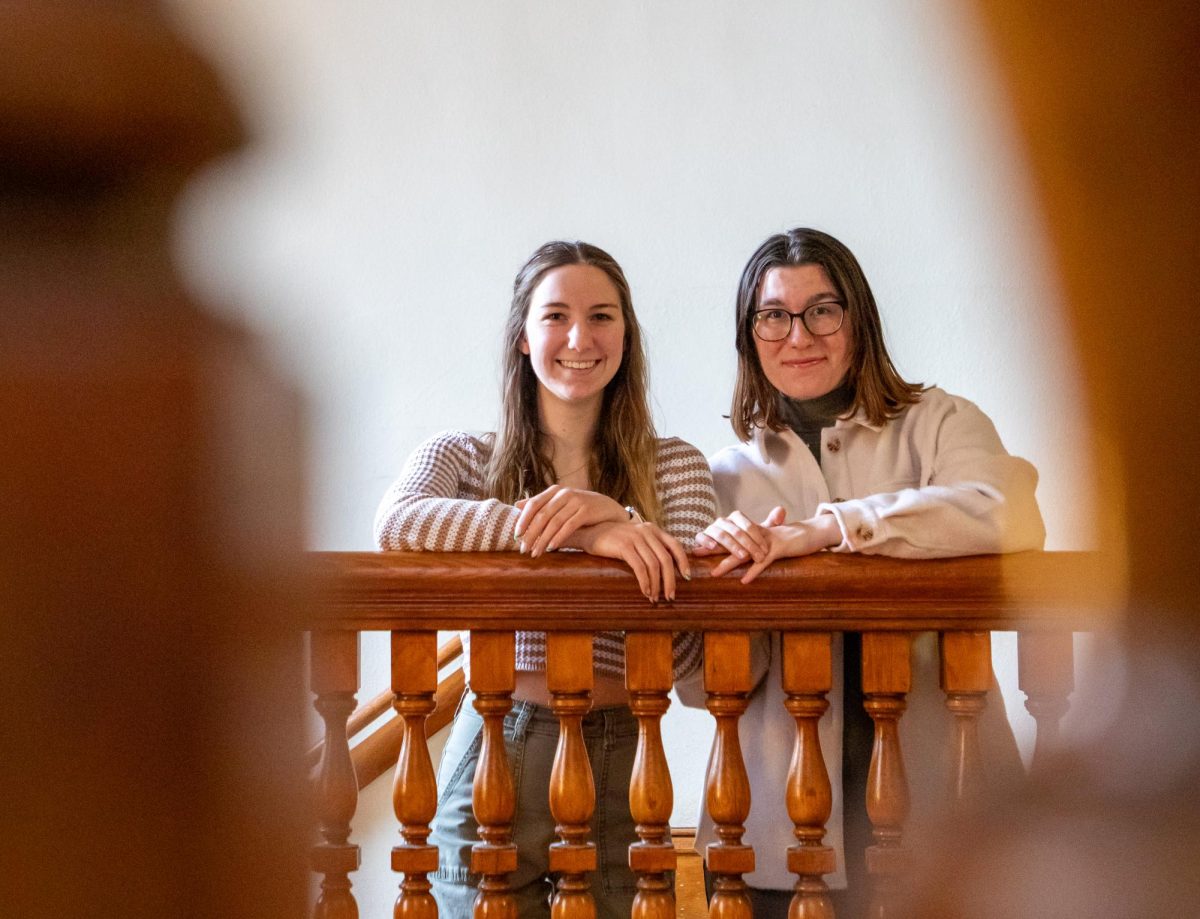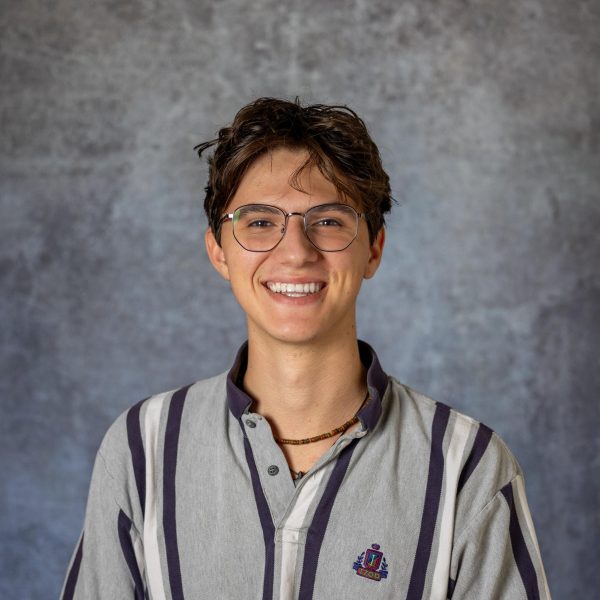When Shelby Olson was elected 2024-25 senior class vice president, she knew she wanted to use her time in the position to bolster mental health support services for her University of Wisconsin peers.
Driven by her own experiences navigating mental health challenges, the biology and psychology double major recognized a gap in services for seniors nearing graduation. And her peers seemed to agree.
In a series of polls sent out to graduating seniors gauging interest for different areas of campus the Senior Class Office could focus on, Olson said her peers expressed overwhelming support for mental health and suicide prevention initiatives.
The Senior Class Office named University Health Services Mental Health Services the benefactor of the class gift and focused their efforts on organizing programming specifically targeted at supporting graduating seniors nearing a transition period in their lives.
It’s an approach that acknowledges graduation not just as an academic milestone but also as a life transition requiring proper support. As their term nears its end, Olson and her fellow senior class leaders have helped implement practical mental health programming based on their initial goals.
But more than just developing programming for those graduating in May, the group has focused on a sustainable approach. Through strategic budgeting and targeted fundraising efforts, Olson said the Senior Class Office has designated funding to maintain these mental health programs for at least three additional years beyond their term.
Easing the transition
In conversations with her classmates, Olson said she’s noticed a common thread among seniors across campus — anxiety about what comes next.
“I hope people know that they’re not alone, and that it’s okay to talk about these things and the anxiety of not knowing,” Olson said. “There are so many things we’re all feeling inside that can be hard to talk about, but it’s completely normal to not have a plan.”
Transition periods can be stressful due to the uncertainty and disruption they cause. UHS associate director of campus and community engagement Brittany Howell says the period following graduation can be both exciting and stressful and that it is her goal to help students feel prepared to enter this transition period.
“We are hearing from students that they’re wanting to learn more about how to cope with transition, especially as they get closer to graduation,” Howell said.
To support students approaching this transition, Howell has worked closely with members of the Senior Class Office to arrange programming that targets the unique stressors seniors face in their final year — from career planning and graduate school applications to the emotional weight of leaving familiar environments.
The programming has included additional Let’s Talk drop-in counseling sessions for seniors throughout the academic year. The sessions have been held at different points in various locations across campus, reducing barriers for seniors wishing to speak with a counselor.
An upcoming three-day event series during the final week of classes will conclude the programming, bringing seniors together days before graduation to continue these conversations.
The programming features three distinct events — “Real Talk: Navigating Life Post-Graduation” on April 29, “Toast to the Tassels: Celebrating Current and Future Friendships” on April 30 and “Caps & Conversations with Wheelhouse Studios” on May 1.
The first event will feature a panel discussion with recent UW alumni about their transition to life after graduation. At the second event, attendees will make mocktails, “toasting” their current friendships, as well as friendships to come following graduation. The final event will give seniors the opportunity to decorate their graduation caps while also engaging in a facilitated discussion about coping with transition and change.
While organizing the event series, a commitment to creating spaces where people feel comfortable speaking about these topics proved essential.
“I hope these kinds of spaces, these kinds of conversations and fun events help people feel more comfortable reaching out for help,” Olson said.

A legacy beyond graduation
Senior class president Sam Mahlum says Olson has a “natural need to better society.” The pair became quick friends after they met on campus, and when Mahlum decided to run for Senior Class Office, she immediately knew she wanted Olson to be her running mate.
“We both have a natural passion for wanting to see positive change on campus,” Mahlum said.
Now, as Mahlum and Olson prepare to graduate themselves, they leave behind not just a program but a new standard for how universities can support students through a critical transition that takes them beyond campus walls.
This year’s class gift embodies the Wisconsin Idea principle of paying it forward, supporting this programming for future groups of graduates. Beyond designating the funding, Mahlum and Olson have helped foster a crucial relationship between UHS and the Senior Class Office. They’re dedicated to seeing this continue.
“When we transition with the next Senior Class Office, we’re going to make it really clear that this programming is going to stay for the next three years — at least,” Mahlum said.
In addition to programming arranged in partnership with the Senior Class Office, graduating seniors who have received mental health care through UHS while on campus can receive support with the transition of providers.
In the six months following graduation, UHS care managers can connect graduates with community resources in their preferred location while they establish mental health care with a new provider. Both students and their care providers can initiate this process, easing the transition for mental health support, Howell said.
But the efforts of the Senior Class Office mark a slow shift in campus culture and how the post-graduation transition is discussed. Olson and Mahlum have identified a gap and worked toward a solution.
“In future years, I hope this kind of conversation becomes way more normalized,” Olson said. “And I hope that even after the funding runs out, this programming is so popular that the school wants to keep it and put funding toward it.”





